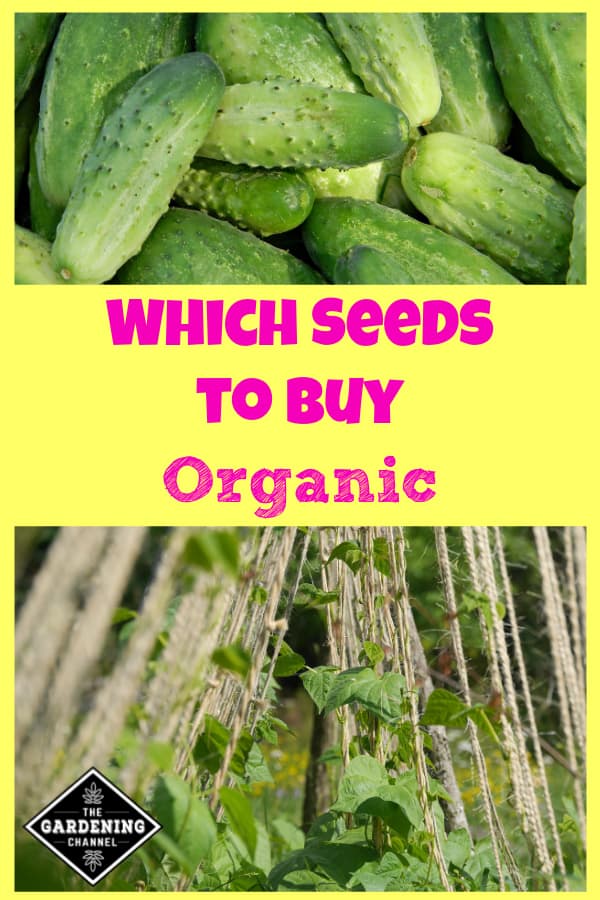
Most successful gardens begin with seeds. Since seeds are the beginning of your healthy food choices in gardening, it makes sense to choose the best seeds available. This creates a solid foundation upon which the rest of your organic gardening adventure builds.
Benefits of Organic Seeds
There are several primary and secondary benefits to organic seeds. The biggest advantage to starting with organic seeds is that the seed’s source was also grown organically. This means the plant itself did well when grown organically, so it stands to reason that its offspring would as well.
A secondary, but important, reason to also choose organic seeds is the upstream benefit. When you purchase an organic seed, you are purchasing from a grower who grows organically and thus supporting their decision to do so. This means all of the pollution and waste that their operation may have created had they grown using chemical methods is not being produced thanks to your support.
Why Buy Organic Seeds
The two reasons above are the best talking points for encouraging organic seed use. One more reason may also play a part: pollution. Pollution of the air and water, of course, is a big deal, but here we’re talking about pollution of the seed and the plant it will grow.
The top reason for growing and eating organic food is to avoid pesticides and other chemical residues. If those chemicals were used on the mother plant that produced the seeds you’re about to plant, it’s entirely plausible that they are present on your seeds and hence will be present in the plants you’re growing from them.
Lastly, organic (especially “organic heirloom” or “organic hybrid”) seeds are, by implication, not genetically modified (GMO) – another concern for many people today.
Which Seeds To Buy Organic?
If possible, every seed you plant in your garden should be organic. If that is not possible, then there are some plants that will generally grow better when grown organically than do others. Most of these are fairly robust plants and whenever you can, choose heirloom varieties as they are usually time-vetted for hardiness.
If your garden is to be organic, then you will definitely want to make sure the weakest plants you’ll be growing are organically-sourced and able to withstand the pests and problems that can come with organic gardening.
Many varieties of tomato and spinach, for example, are very robust if the strain of plant is correct for the growing conditions. With these, it’s also best to diversify if at all possible and grow more than one strain of each type. This helps avoid total crop loss should one succumb to something that another is resistant to. Research your choices carefully.
More robust plants won’t need so much consideration. Most underground growers, such as potatoes, onions, beets, and so forth are very hardy and resistant plants that will do well when grown organically. Strong perennials like asparagus and rutabaga are also nicely-suited for organic growing.
The vine version of most plants, such as beans, cucumbers, and squashes are usually hardier and easier to grow organically than are the bush varieties. This is because vines, by their very nature, are generally stronger plants and more resistant to spot problems such as leaf rot or pests.
Want to learn more about buying organic seeds?
Check out these resources:
Why Organic Seed? from NC Cooperative Extension
Organic Seed, Annual Seedling and Planting Stock Guidelines from Washington State Department of Agriculture Organic Food Program

I have been buying my Organic or Heirloom seeds in Australia from Eden Seeds. I find they are really good too.
I do not think I could buy the seeds from your site but I do love your advice.